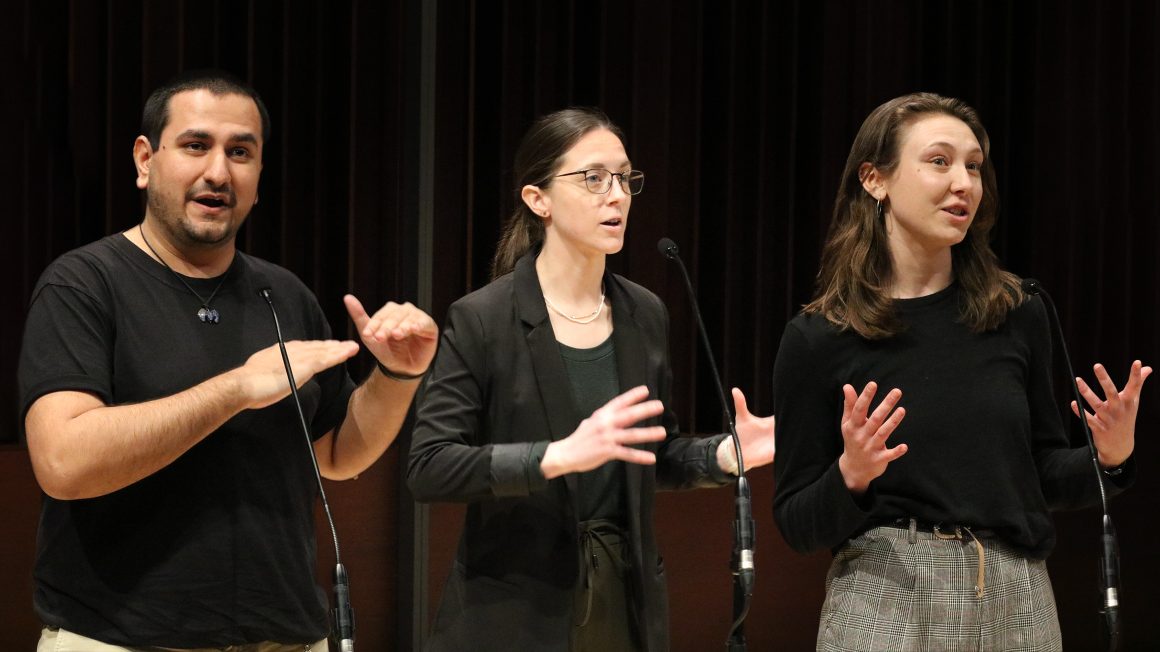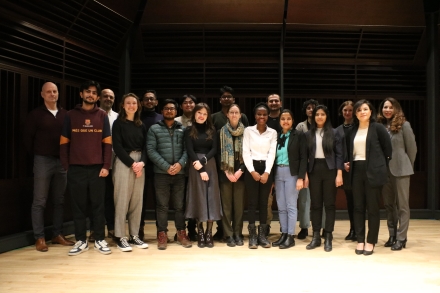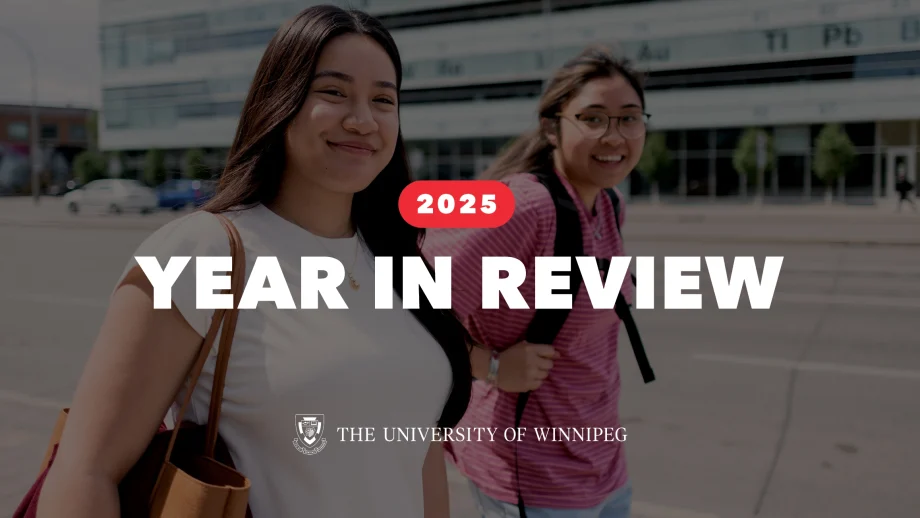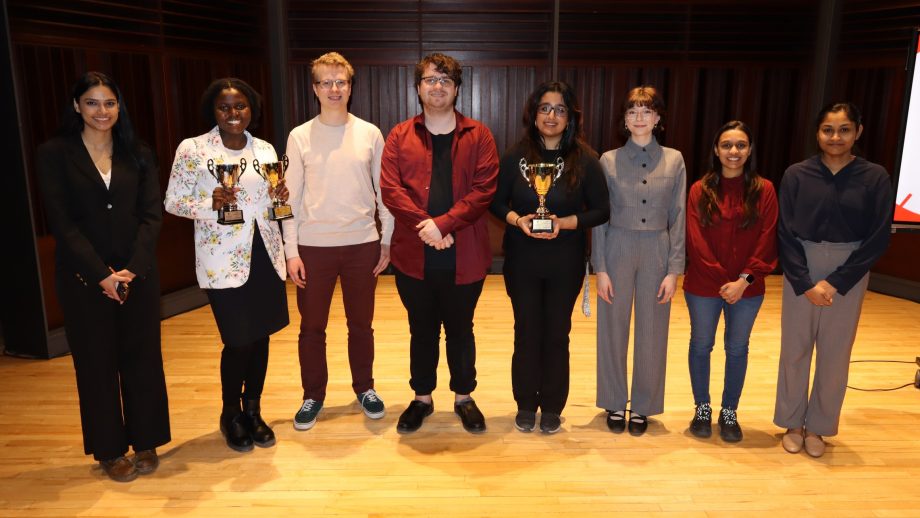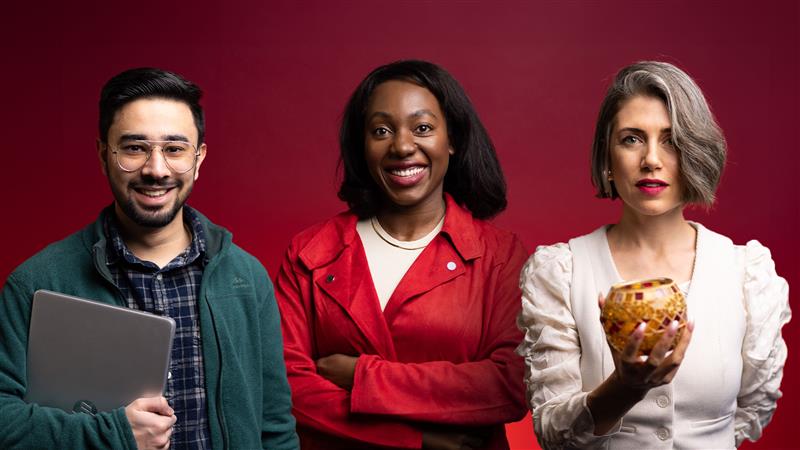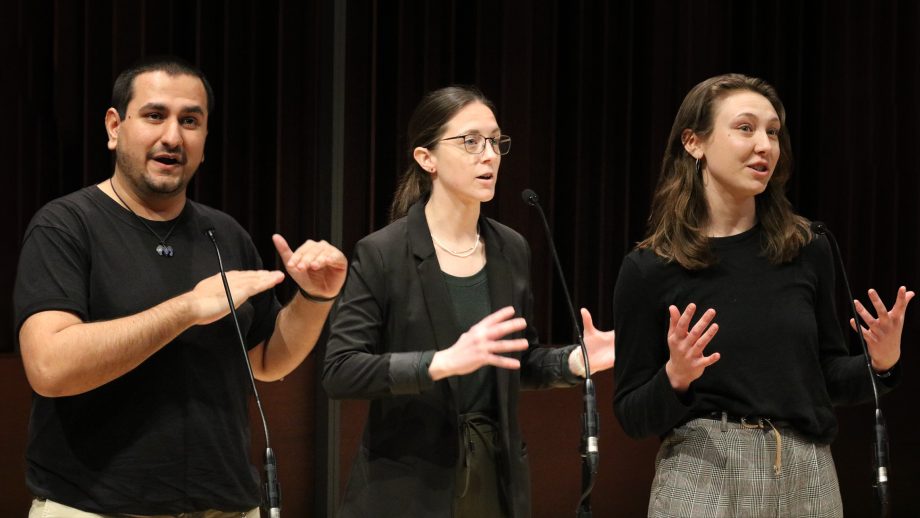Judges had their work cut out for them at the 11th annual Three-Minute Thesis (3MT) Competition on March 1, where a record-setting 18 graduate students delivered presentations on everything from machine learning to Ghana’s chocolate industry to the health of bat populations.
“The 2024 Three-Minute Thesis Competition displayed the remarkable talent and dedication in our graduate students,” said Dr. Manish Pandey, Acting Dean of Graduate Studies. “The judges were delighted by how the 18 participants could so easily present their research as a concise, compelling narrative. UWinnipeg’s 3MT grows larger each year. As we celebrate this year’s success, we are looking ahead to expanded training opportunities for future participants, and ways to continue to bolster this celebration of graduate research.”
Finding ways to talk about your research without using language that only people in your research silo will understand is really important.
Janelle Laing
When the timers stopped and the results were tabulated, three students went home with trophies and a monetary prize.
Janelle Laing, a MSc candidate in Bioscience, Technology and Public Policy, clinched the first-place prize of $2,000 with a presentation titled Claws, Climate Change, and the Canadian Arctic: Studying Ringed Seal and Bearded Seal Diet.
Laing also received a $1,000 award, sponsored by Bioscience Association Manitoba, for the best presentation by a MSc candidate.
Olivia Kehler, a MA candidate in Environmental and Social Change, won the second-place prize of $1,000 with a presentation called Researcher Reflexivity on Empowering Practice in Community-Engaged Research.
The $500 People’s Choice award went to Pranav Sadana, a MSc candidate in Bioscience, Technology, and Public Policy, for his presentation Hibernating to Hibernate: How Do Bats Accumulate Fat to Prepare for Hibernation?
From spectator to competitor to winner
Laing was inspired to enter 3MT after attending last year’s competition as a spectator.
“It was really engaging and fun to watch and hear about others’ research,” she said. “I thought, ‘Oh, I definitely have to do it next year.’”
At first, participating felt like a step outside of Laing’s comfort zone.
“On the day-of I was very nervous,” she said. “I don’t particularly love public speaking but I wanted to get more experience with it.”
Laing appreciated the morning practice session and the supportive atmosphere fostered by organizers.
“They did a very good job in terms of making sure you felt as prepared as you could possibly be, and trying to make you as comfortable as possible in that environment.”
Laing’s presentation topic stemmed from her longstanding interest in Arctic biology. In less than 180 seconds, she deftly explained how seal claws can be read like tree rings, providing a window into the animals’ past diet and habitat use.
For Laing, the biggest benefit to participating in the 3MT was learning how to convey specialized research to a general audience.
“It’s easy to forget which words are jargon in your field, and which ones are not,” she said. “Finding ways to talk about your research without using language that only people in your research silo will understand is really important. Especially being a science student, you need to be able to communicate what you’re doing, why it matters, and why it’s worthwhile.”
After completing a bachelor’s degree at UWinnipeg, Laing entered the workforce, then returned to UWinnipeg for her master’s degree.
“Being from Winnipeg, I know that there are quite a few researchers here who do Arctic biology,” she explained.
After graduation, Laing hopes to enter the federal public service, working for Parks Canada or Fisheries and Oceans Canada.

